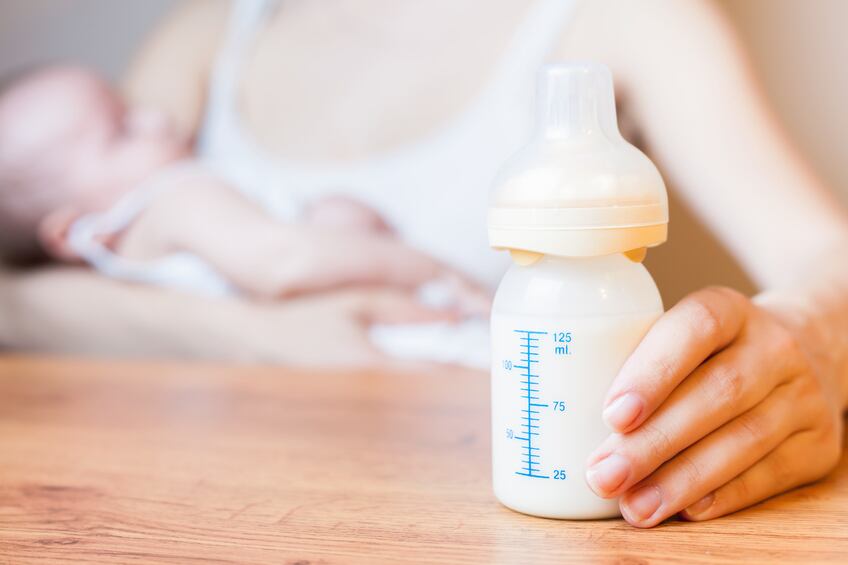Produced by The British Specialist Nutrition Association (BSNA), the Infant Nutrition Industry (INI) Code, applies to BSNA members, who include Danone, Nestlé, Abbott, HiPP and Mead Johnson, in guidelines that also look to address product composition, sales, marketing and clinical research.
“The INI Code has been introduced to bring a clarity and uniformity of standards across the infant nutrition businesses,” said Declan O’Brien, director-general of the BSNA.
“The infant nutrition industry is one of the most tightly regulated food sectors in the world.”
Modelled on the industry codes of other highly regulated industries, such as the ABPI Code of Practice for the pharmaceutical industry, O’Brien added that complaints made against a company under the INI Code would be regarded as a serious matter both by that company and by the industry as a whole.
The INI Code of Practice Authority (INICPA) will require appropriate corrective action to be taken by any company found to be in breach of the INI Code,” he added.
The Code applies to the products used for infants aged 0-12 months as well as infant formula suitable from birth (also known as ‘first infant milk’)
Follow-on formula suitable from 6-12 months, designed for use as part of a mixed weaning diet also falls under the code’s remit, as do specialist formulas designed for infants from 0-12 months and used under medical supervision.
The Code will be regulated by the formation of a new, independent Code of Practice Authority (INICPA), which will investigate complaints made and have the power to require any company found to be in breach of the Code to take appropriate steps to correct it.
Voluntary self-regulating code
The BSNA stressed that the complaints procedure would be an online process, with the outcome of complaints published by the group at www.bsna.co.uk. The complaints procedure is expected to go live on 1 March 2019.
The formation of the voluntary self-regulating INI comes as infant formula manufacturers stand accused of a series of actions that under the new INI Code would be considered serious violations.
In November last year, campaign organisation Changing Markets Foundation claimed that four leading manufacturers of milk formulas were boosting profits by exploiting parents’ desire to give the best possible nutrition to their offspring.
In a report that looked at over 400 infant formulas made for babies under 12 months old, Nestlé, Danone, Mead Johnson Nutrition and Abbott stood accused of selling these products in 14 markets based on consumer preferences rather than science-based fact.
Further findings claimed manufacturers were needlessly adding nutrients to ‘premium’ products in an attempt to better mimic breastmilk or represent ‘the latest developments in nutritional science’.
In an industry response, issued by Brussels-based International Special Dietary Foods Industries (ISDI), the organisation said the sector “provides—based on the latest available science—high quality, safe and age appropriate nutrition for infants, and young children”.
“Putting a product on the market is affected by many factors, including R&D, which is at the core of infant and toddler nutritional products, ingredient quality, and production processes and packaging.
Likewise, other environmental, regulatory or business considerations in each country will have an impact. When marketing follow-up formula and growing-up milk, our industry agrees that it needs to be ethical, unambiguous and done transparently.”
Nestlé under spotlight
Changing Markets’ investigations didn’t stop there as they accused Nestlé of misleading consumers with nutritional claims about its infant formula products, flouting ethical marketing codes in the process.
In a report that looked into how Nestlé markets its infant milk formula across the world, investigations found ingredient and nutritional health claims appeared to follow marketing strategies instead of scientific evidence.
A spokesperson for Nestlé acknowledged that the report raised important points adding that the firm "fully support the fact that malnutrition rates globally require all actors, including industry to do their part to ensure more people have access to better nutrition across the globe".
“We note that the report emphasises the important role of infant formula in providing adequate nutrition for children when breastfeeding is not possible.
As a leader in the category, we provide products that are safe and as nutritionally complete as possible, and ensure the composition is informed by the best available science.“


